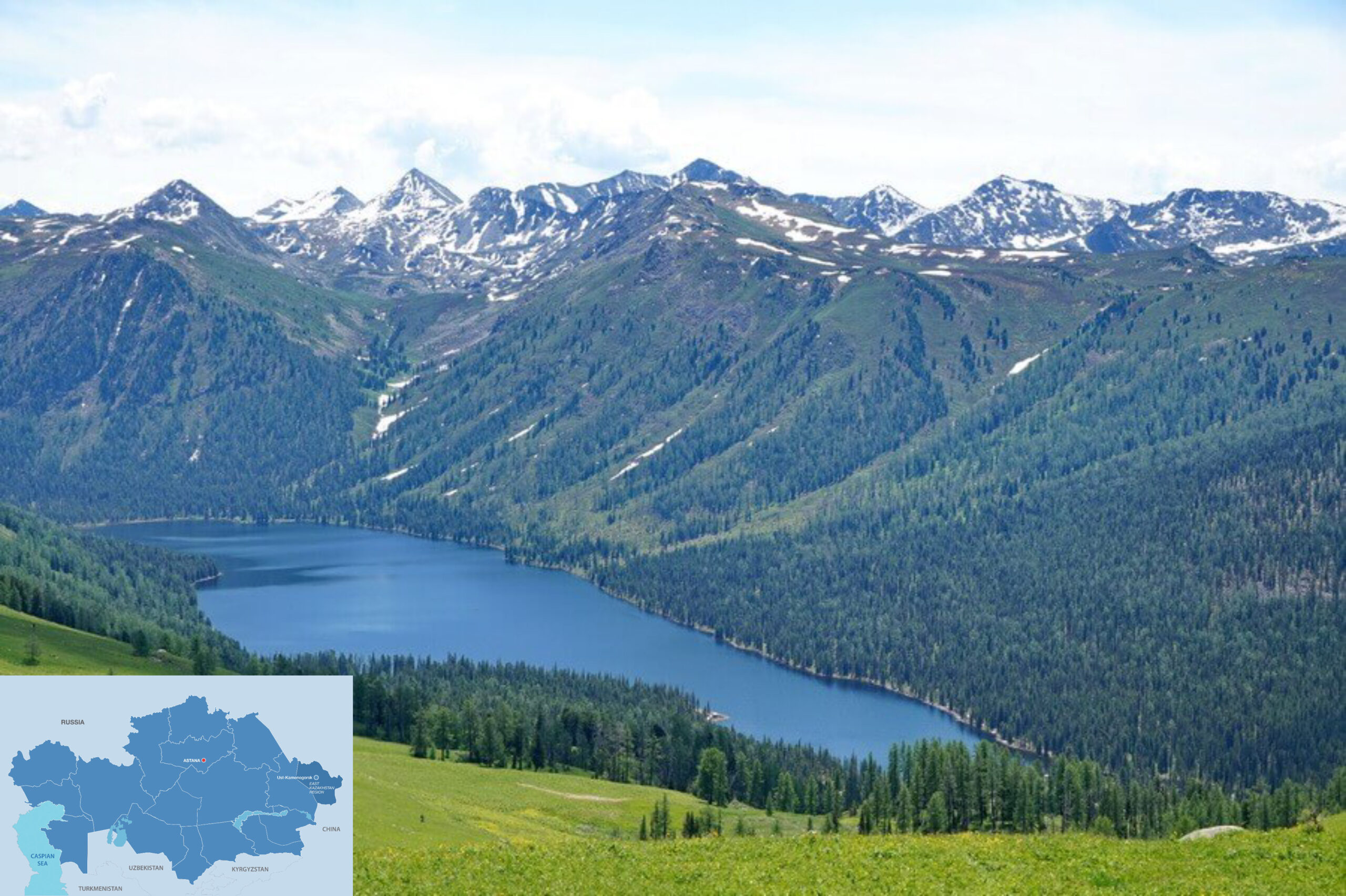ASTANA – The Katon-Karagai region can become the first fully green region in Central Asia, announced Rae Kwon Chung, the professor, Nobel Peace Prize winner in 2007, and member of the Intergovernmental Panel on Climate Change, during the Samarkand Climate Summit held on April 4 in Uzbekistan, reported the Sustainable Rural Development Fund.

Katon-Karagai. Photo credit: adrenalinicsilence.kz Click to see the map in full size. The map is designed by The Astana Times.
Located in Eastern Kazakhstan, Katon-Karagai is already recognized as a key eco-tourism destination. It is home to Kazakhstan’s largest national nature park, which covers 68% of the district. In 2024, it was listed among Green Destinations worldwide.
Amid global climate change, renewable energy sources, smart waste management, and modern climate monitoring methods can be implemented in such regions. Katon-Karagai can become an example for others.
Its key advantage lies in its cultural and historical heritage, as well as local traditions of respect for nature, forming the foundation for eco-tourism, organic farming, and forest management.
While countries such as South Korea, Singapore, and several in Scandinavia have launched their own green pilot projects, Central Asia has yet to lead in these initiatives. According to experts, with its economic and natural potential, Kazakhstan could be the first in the region to adopt systematic, nationwide green economy principles.
“Ideally, the start of such an initiative could be a Green Region Manifesto – the public adoption of a value declaration and the development of a roadmap to 2035 that includes environmental, social, and technological benchmarks,” Rae Kwon Chung said.
Katon-Karagai is now considered a “laboratory of the future” that combines advanced technologies and traditional values. If the initiative is supported, Kazakhstan will have a real chance to become a starting point for the region’s ecological modernization.


